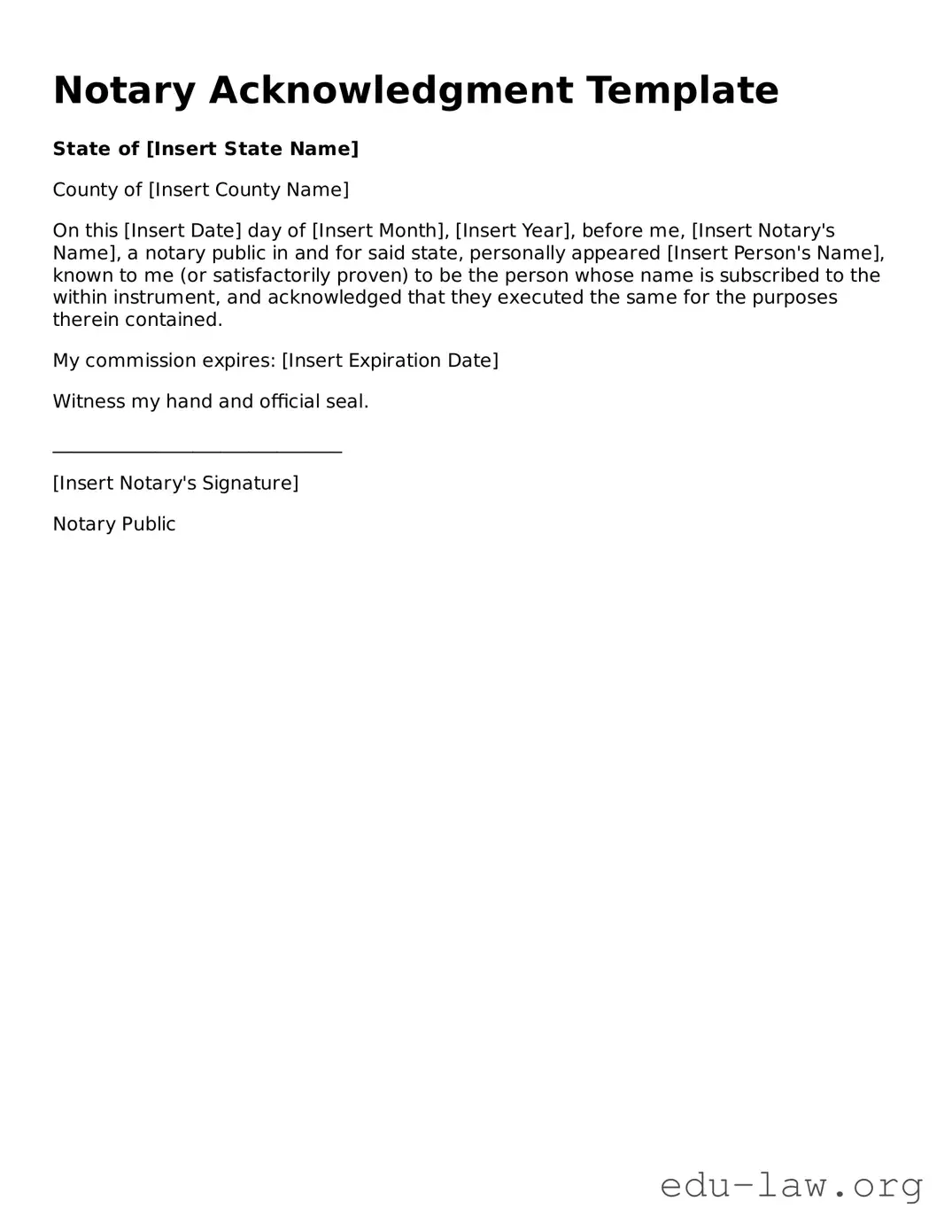What is a Notary Acknowledgement form?
A Notary Acknowledgement form is a legal document used to verify the identity of an individual signing a document. It serves as proof that the signer has confirmed their identity and signed the document voluntarily. This form can be crucial in various legal scenarios, such as real estate transactions or signing contracts.
Why do I need a Notary Acknowledgement?
The Notary Acknowledgement protects all parties involved. It adds a layer of security by ensuring that the person signing a document is indeed who they claim to be. This helps prevent fraud and enhances trust. Many institutions, like banks or courts, require notarized documents for that reason.
Who can act as a Notary Public?
Notaries Public are licensed individuals authorized by the state to perform notarizations. They must meet specific criteria, which usually include being at least 18 years old, a resident of the state, and passing a background check. You can typically find notaries at banks, law offices, or government agencies.
What does the Notary do during the process?
During the notarization process, the Notary Public will verify the identity of the signer, usually by checking a government-issued ID. They may ask the signer questions to ensure they understand what they are signing. After confirming these details, the Notary will complete the form, adding their signature and seal.
Can I sign the document before seeing the Notary?
It's best to wait until you're in front of the Notary to sign the document. The Notary needs to witness your signature to complete the acknowledgment correctly. Signing beforehand may lead to complications and could invalidate the notarization.
Is there a fee for notarization?
Yes, most states allow Notaries to charge a fee for their services. The exact amount varies by state and can range from a few dollars to $15 or more per signature. It's wise to inquire about fees before the appointment to avoid any surprises.
How long is a Notary Acknowledgement valid?
Generally, a Notary Acknowledgement remains valid as long as the document itself is valid. However, each state has its own rules regarding the expiration of notarized documents. Always check local regulations to understand any specific time limitations.
What types of documents typically require a Notary Acknowledgement?
Many types of documents may need a Notary Acknowledgement, including real estate deeds, power of attorney forms, wills, and certain business contracts. When in doubt, consult your legal advisor or the specific institution requiring the document.
Can I get a Notary Acknowledgement for documents in another state?
Yes, a Notary can acknowledge documents from another state, as long as they are authorized to notarize in their own state. However, some institutions may require out-of-state notarizations to meet specific criteria. Always check with your local authority or the receiving entity to ensure compliance.
